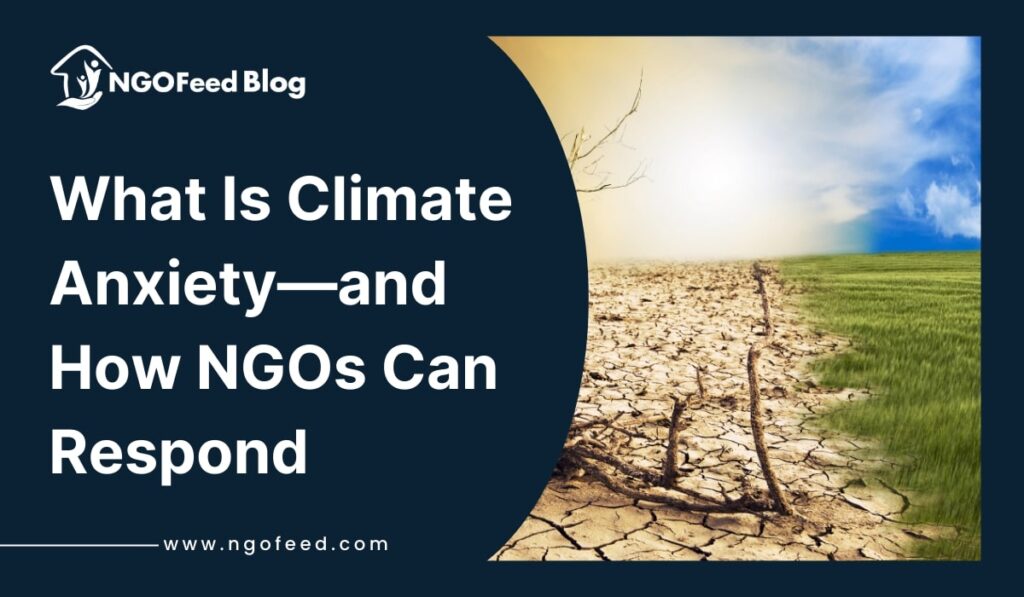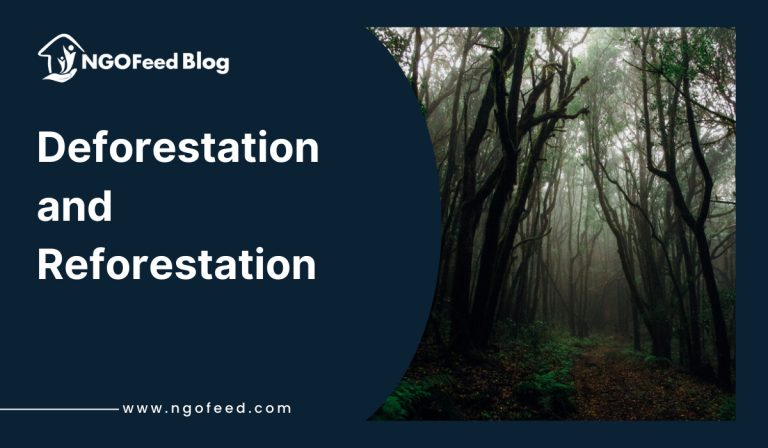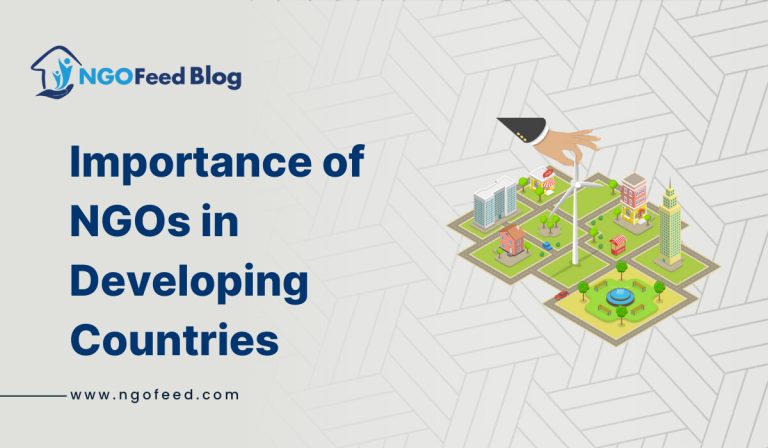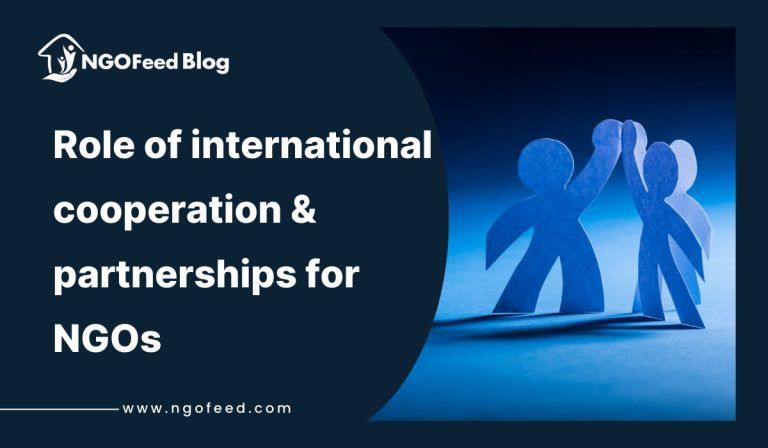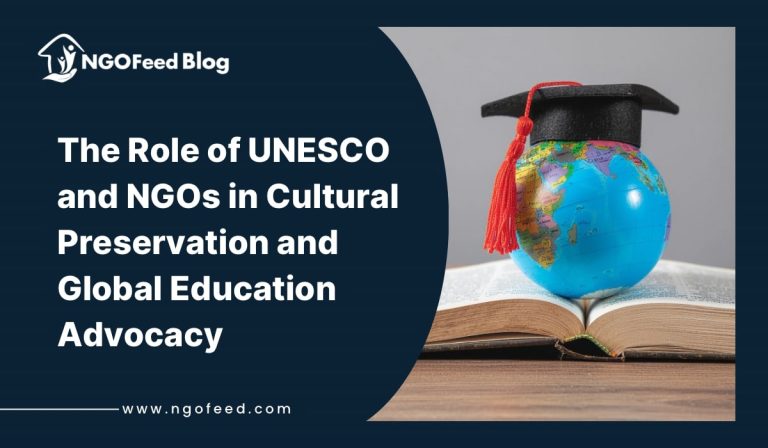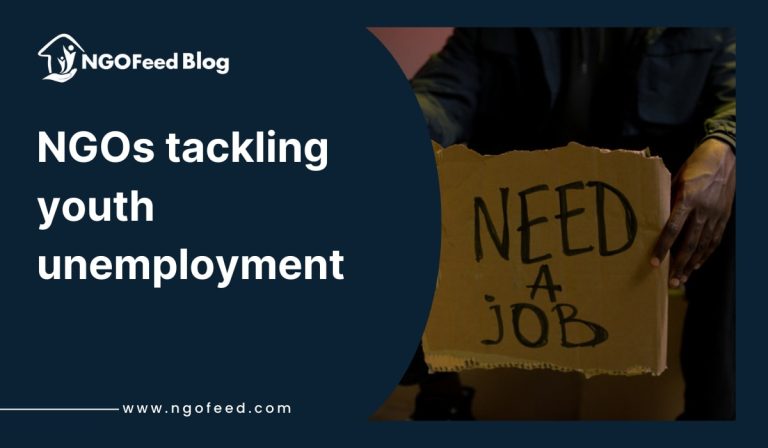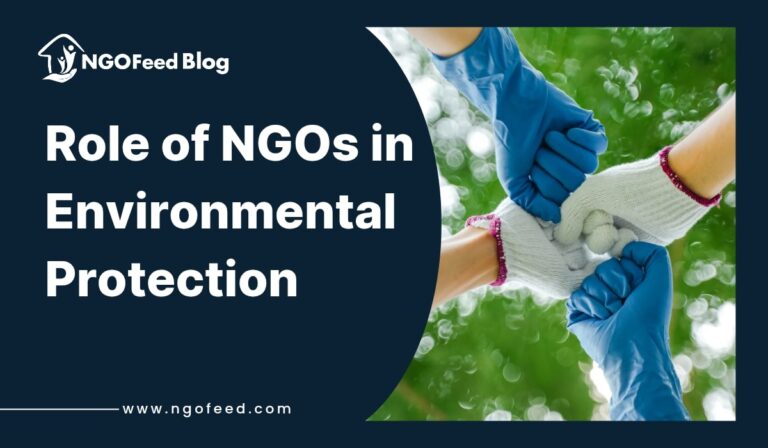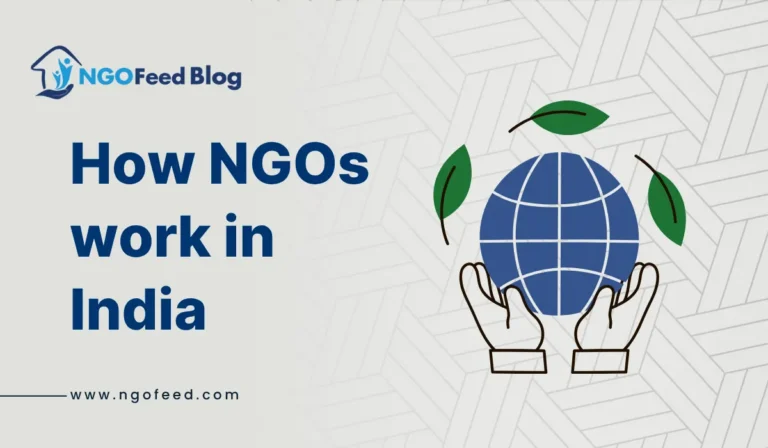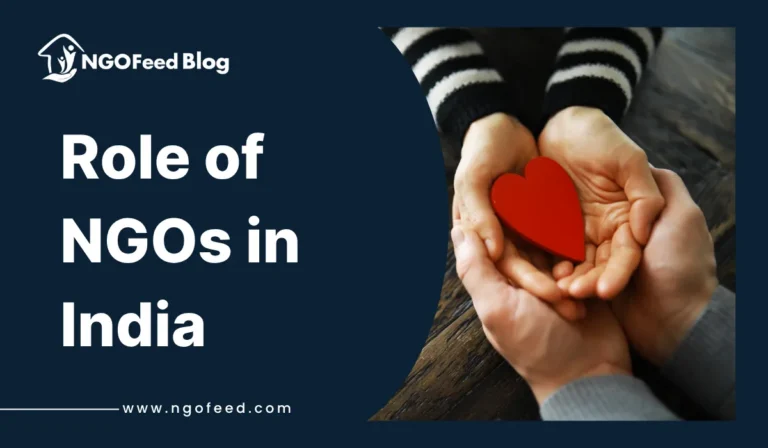In recent years, the looming menace of climate change has produced a new psychological reality–climate anxiety. Climate anxiety is defined as the persistent experience of environmental doom, not a clinical condition, but an extremely real emotional reaction to the perceivable and expected effects of global warming. Intense heat waves, weather extremes, biodiversity depletion, and unpredictable futures are all making some people, particularly the young, feel helpless, grieved and hopeless. Climate anxiety is now an accessible phenomenon, as studies suggest, as children and adolescents show the highest level of anxiety about the issue they develop as the planet progressively grows less stable.
As governments and corporations cope with the scientific and policy aspects of climate change, civil society, especially non-governmental organisations (NGOs), should have a critical part to play in the emotional and social aspects of climate change. NGOs can mediate between society, policy makers, and mental health experts and provide avenues of awareness, debate, and action. With the development of safe expression spaces, climate education initiatives, and directing anxiety into productive action, NGOs can turn fear into resilience.
With the continued role of ngos in climate anxiety in shaping the consciousness of the masses, it is important that NGOs acknowledge its relevance as an environmental challenge as well as a social justice and public health challenge. The ability to comprehend and react to this phenomenon will enable them be able to instil hope, empower communities and ensure that action against climate is not driven by only the sense of urgency, but also empathy.
Also Read: UNDP India Research on Poverty Reduction and Climate Change Adaptation
Table of Contents
What is Climate Anxiety?
Climate anxiety can be defined as the severe concern or fear, or discomfort that individuals develop when they consider the current and future effects of climate change. In contrast to generalised stress, this fear is based on the perception that environmental crises such as increasing world temperatures, floods, wildfires, and loss of biodiversity do not only represent local but also global threats that cannot be easily managed. It does not qualify as a mental illness, yet it is becoming more and more accepted as a serious psychological reaction to environmental turmoil.
Young people are one of the most vulnerable groups, because they are always reminded that their future is in danger. Most of them complain that they feel helplessness, frustration and even guilt that they have not done enough to combat climate change. Climate disasters have also increased levels of eco-grief and trauma in the communities directly impacted by the disaster. Notably, the climate anxiety may take more than one form, including sleeplessness and anger, as well as withdrawal or activism.
Although climate anxiety can be intimidating, psychologists emphasise that it is empathetic, knowledgeable, and accountable to the planet. That is, it is not a mere issue to be treated but a collective concern as well. Knowledge about climate anxiety is, then, the initial step in tackling the impact of climate anxiety and turning it into meaningful climate action.
Also Read: The Role of Greenpeace India in Environmental Research and Advocacy
The Global Scale of Climate Anxiety
Climate anxiety has ceased to be a niche issue, and it has become a global psychological phenomenon that has implications for millions of individuals of various ages and regions. Polls that are held across the world reveal that people are becoming more and more interrelated between their personal welfare and the welfare of the planet. The consequences of climate change are seen everywhere: the level of lakes is rising, droughts are lasting, floods are destructive, and heat waves this intensifying the fear of the future among people collectively.
Important findings on the magnitude of climate anxiety all over the world are:
- High Fears among the Youths: Studies have shown that more than 60 per cent of the youths across the globe say that they are very concerned about climate change and that they feel that governments are not doing a lot to address climate change.
- Cross-Generational Impact: Young people are the most vocal, but adults and senior generations are also afflicted by eco-anxiety, especially in communities at risk due to direct climatic changes.
- Geographic Vulnerabilities: The populations of climate vulnerable areas, including low-lying island countries, drought-prone Africa and cyclone-prone South Asia, experience increased anxiety associated with displacement, food insecurity and livelihood loss.
- Mental Health Burden: According to the experts, climate anxiety may pose a serious health concern in the future unless it is addressed and may impact productivity, education, and social cohesion in general.
- Global Solidarity and Shared Fears: In spite of culture, the fact that we all seem to experience the urgency of climate anxiety reminds us that climate change is a universal human issue.
This escalating emotional load is a crucial indication that NGOs and civil society actors have to intervene, not merely with solutions to the climate, but also with the psychosocial support and neighborhood resilience programs.
How NGOs Can Address Climate Anxiety
Non-governmental organisations (NGOs) are better placed than anyone to address climate anxiety since they are the ones who interact with communities, give voice to marginalized people, and in many cases mediate the policy-people divide. They promise more than just the promotion of environmental policies, as they can also foster emotional resilience, raise awareness, and make citizens feel empowered enough to make a difference.
NGOs can deal with climate anxiety by the following means:
Also Read: International Rescue Committee Research on Refugee and Migrant Support in India
- Creating Awareness and Education: Raise awareness through workshops, campaigns, and school education so that people get to know about climate change, its effects, and ways in which it can be solved. Definite knowledge decreases the feeling of helplessness.
- Establishing Safe Spaces to Discuss: Build community forums and youth groups to create spaces where the community can discuss their fears, hopes, and experiences, and alleviate isolation as well as promote solidarity.
- Encouraging Mental Health Support: Partner with psychologists, counsellors, and community health workers to incorporate emotional well-being in climate programs.
- Turning Anxiety to Action: Promote climate-anxious people to attend tree planting events, cleaning up efforts, sustainable agriculture, or renewable energy initiatives- taking fear and turning it into productive activity.
- Promoting the Change of a Policy: Get the grassroots to push the governments and corporations to commit greater efforts to climate, and make the communities feel that their needs are heard at a higher level.
Climate anxiety into climate resilience and hope can be potently achieved by NGOs through the combination of awareness, emotional support, and action-oriented opportunities.
From Anxiety to Action: Building Resilience
Climate anxiety can be overwhelming, but it can also prove to be a chance to develop resilience and encourage people to take action. Once people focus their fears on meaningful activity, the same may be converted to motivation to do something good. NGOs are very important in facilitating this transition and assisting the communities to quit living in despair to empowerment.
Some of the ways to develop resiliency and transform anxiety into action are:
- Promoting Positive Interaction: Engaging communities in meaningful climate action, such as renewable energy initiatives, garbage management, or sustainable farming, will assist in changing the anxiety about the climate to become positive action.
- Demystifying Positive Climate Solutions: Publicising accomplishments related to conservation, clean energy use and community-led projects will swap the sense of doom with optimism and awe.
- Giving Youth a Voice: Youth Leadership will enable climate anxious young people to feel represented and appreciated, therefore making them feel they have a part to play in their future.
- Building Community Resilience: community resilience planning, eco-clubs and volunteer programs are collective activities that enhance a sense of solidarity and decrease manipulation of isolation.
- Breeding a Narrative of Hope: A shift in the discussion toward catastrophe to possibility will assist individuals to visualize sustainability and a livable future.
Also Read: CARE International Studies on Women Empowerment and Livelihood in Rural India
Resilience does not mean that one should not take climate change seriously–rather, it means that one should seek strength in community, solutions, and joint responsibility. NGOs can facilitate this change by working to make sure that people translate climate anxiety into a driver of effective change and not its paralyser.
Conclusion: Toward Hope and Collective Responsibility
Climate anxiety serves as a very strong reminder that the climate crisis is not entirely an environmental problem, but also a deeply human issue, touching emotions, health and overall well-being. Although it is usually fear and uncertainty, when it has good guidance it can be a powerful force to act upon, with empathy and purpose.
NGOs, through their community-based model, are in the right position to turn this sense of anxiety into resilience. They can make sure that the fear prevents the paralysis of people and make them participate instead by creating awareness, providing safe spaces and empowering people and the youth in particular. NGOs also play an important role in acting as the voice of the vulnerable people in the policy arena, and this gives hope some foundation in action.
Also Read: Research by ActionAid India on Women’s Rights and Social Inclusion
Finally, it is not just a question of calming down anxiety about climate as it is a question of fostering solidarity, trust and a shared stewardship of the planet. Through compassion, education and participation, NGOs can assist communities to shift out of anxiety to empowerment, so that hopefulness is kept at the core of the global climate movement.

